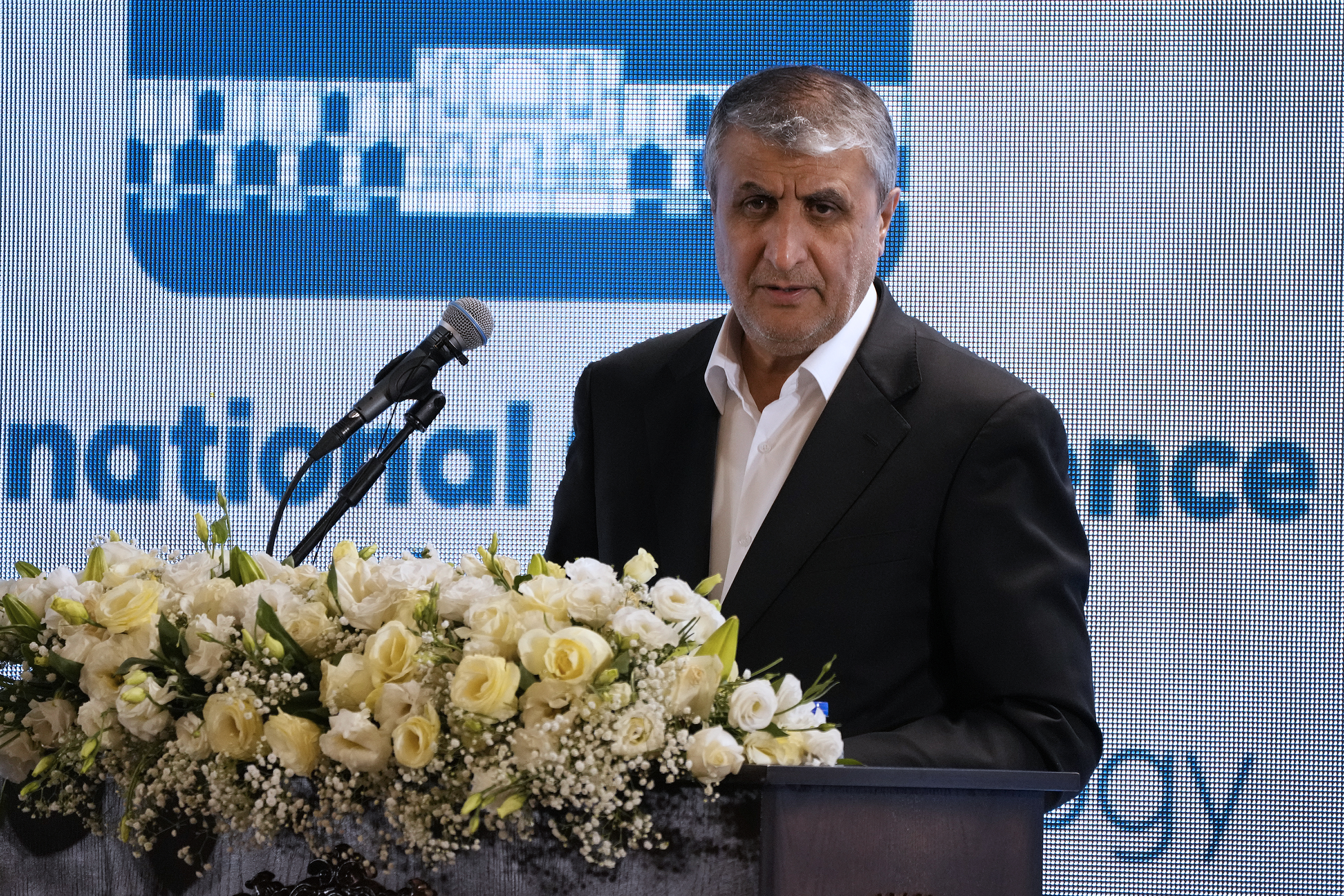
TEHRAN - Iran's atomic chief said Monday that the country will continue cooperation with the United Nations nuclear watchdog within the frameworks of the safeguards agreement and Non-Proliferation Treaty (NPT).
President of the Atomic Energy Organization of Iran (AEOI) Mohammad Eslami made the remarks at the opening ceremony of the first International Conference on Nuclear Science and Technology and the 30th National Nuclear Conference in the central Iranian province of Isfahan, according to the semi-official Fars news agency.
He expressed hope that the International Atomic Energy Agency (IAEA) would play an independent role in Tehran's nuclear program.
Eslami said, like many other countries, Iran would also develop its nuclear technology determinedly, adding the AEOI was making quick efforts to that end to generate clean and sustainable energy
Earlier in the day, IAEA Director General Rafael Grossi arrived in Iran to attend the conference as well as meetings with Iranian officials.
ALSO READ: Iran arrests suspects over ‘terrorist attacks’ in SE province
The AEOI chief hoped the IAEA would remain unaffected by external "political influence and pressures" against Iran's nuclear program, as testified in the IAEA's constant reports, inspections of Iran's nuclear facilities last year accounted for 22 percent of the agency's global inspections while the country's installed capacity stood at three percent of the world's, which had been "unprecedented" in history.
He slammed the media propaganda campaign and psychological warfare against Iran's nuclear program and provided global access to its facilities as stipulated in its statute, enabling all countries to use nuclear science and technology in a just manner.
Eslami said, like many other countries, Iran would also develop its nuclear technology determinedly, adding the AEOI was making quick efforts to that end to generate clean and sustainable energy.
He stressed that his organization had placed on its agenda the generation of 20,000 megawatts of nuclear power by 2041.
Eslami also expressed his country's readiness to cooperate with Saudi Arabia in the development of peaceful nuclear technology.
ALSO READ: Iran condemns European Parliament's bids to blacklist IRGC
The AEOI chief said Iran possessed favorable research and educational capacities in nuclear technology and was ready to share its experiences and knowledge with other countries.
The Saudi ambassador, for his part, highlighted the necessity to increase interactions between the two countries.
He described Iran as a "neighboring, brotherly and friendly" country, hoping that further progress would be made in bilateral cooperation and the field of peaceful nuclear activities.
Iran and Saudi Arabia formally declared in April of last year the resumption of diplomatic relations with immediate effect.
Saudi Arabia cut diplomatic ties with Iran in early 2016 in response to attacks on Saudi diplomatic missions in Iran. The attacks followed Saudi Arabia's execution of a Shiite cleric.


